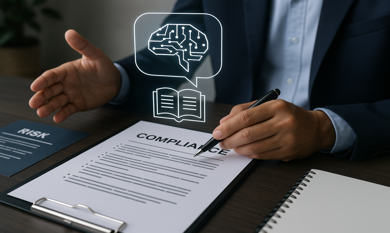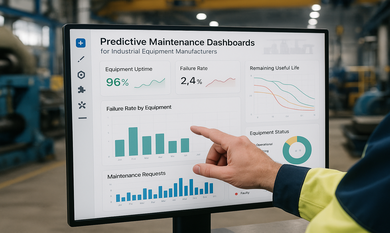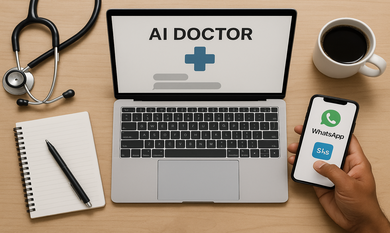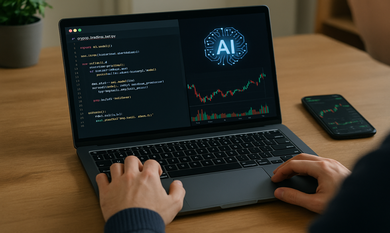In modern manufacturing, downtime is one of the costliest disruptions. Even a few hours of unplanned machine failure can result in production losses, delayed orders, and higher maintenance expenses. As competition grows, manufacturers are turning to Artificial Intelligence (AI) to prevent equipment failures before they occur. By leveraging predictive maintenance AI and data-driven insights, manufacturing plants can achieve continuous uptime, enhanced productivity, and smarter decision-making.
The Role of AI in Predictive Maintenance
AI’s role in predictive maintenance goes beyond simple monitoring—it identifies potential failures by analyzing equipment data patterns and detecting anomalies. Sensors embedded in machines collect real-time performance metrics such as temperature, vibration, and pressure. This data is analyzed using machine learning in production, helping predict when a machine is likely to fail.
For instance, a packaging line motor showing slight vibration irregularities can trigger an alert long before a complete breakdown occurs. The AI system schedules a maintenance check at the most efficient time, ensuring minimal disruption. This approach reduces reactive maintenance costs while extending machine lifespan and improving operational safety.
How AI Transforms Manufacturing Equipment Monitoring
Traditional maintenance methods rely heavily on fixed schedules or manual inspections. While these methods prevent some breakdowns, they often miss hidden issues that escalate into major problems. AI-based manufacturing equipment monitoring changes that by continuously learning from past data and evolving conditions.
Through advanced analytics and IoT sensors, AI can correlate hundreds of variables simultaneously, providing a clear picture of machine health. These systems are also integrated with IoT development services Dallas, allowing real-time communication between machinery and monitoring platforms. The result is a smart factory maintenance ecosystem that is both predictive and preventive.
Benefits of AI-Powered Downtime Reduction
1. Minimized Equipment Downtime
AI systems can predict which components are likely to fail soon, allowing maintenance teams to act proactively. This AI-powered downtime reduction approach prevents sudden halts and ensures production continuity.
2. Cost Savings
Unplanned maintenance often costs 3–5 times more than scheduled repairs. With AI downtime prediction, manufacturers can optimize spare parts inventory, reduce overtime expenses, and avoid costly emergency repairs.
3. Enhanced Safety and Compliance
Malfunctioning equipment poses risks to workers and can lead to regulatory penalties. AI-based systems ensure timely maintenance, reducing the chances of accidents and ensuring compliance with safety standards.
4. Data-Driven Decision Making
AI algorithms can analyze historical trends and production conditions to identify performance bottlenecks. These insights help plant managers make informed decisions about machine upgrades or replacements, ensuring predictive analytics manufacturing is at the core of operations.
Real-World Example: Siemens Smart Factory Initiative
Siemens, one of the leaders in industrial automation, offers a great example of how AI can revolutionize equipment maintenance. Their factories use digital twins and AI-based monitoring systems to simulate and predict equipment performance. By analyzing millions of data points daily, Siemens achieved up to 30% fewer equipment failures and reduced maintenance costs significantly.
This real-world success showcases how machine failure forecasting helps companies shift from reactive maintenance to predictive operations, creating an agile and cost-efficient manufacturing ecosystem.
Integration of IoT and AI in Modern Manufacturing
AI and IoT work hand in hand to enable a fully connected manufacturing environment. Smart factory maintenance systems leverage IoT sensors for continuous monitoring and AI algorithms for predictive analytics.
Manufacturers also integrate AI-driven alerts into mobile apps, ensuring that supervisors receive instant notifications of potential failures. Companies that use android mobile app development services Dallas create customized interfaces for remote machine tracking, making it easier to manage large-scale operations from anywhere.
Through this integration, production teams gain a unified view of all plant assets, enabling them to predict, prevent, and respond to failures effectively.
Key Technologies Powering AI in Manufacturing
1. Machine Learning Models
Machine learning enables predictive models to detect abnormal behavior and suggest maintenance actions before breakdowns occur. Algorithms learn from both historical and real-time data, improving prediction accuracy over time.
2. Digital Twins
A digital twin is a virtual model of physical equipment that simulates operations. It helps engineers predict the impact of different maintenance scenarios, making AI production monitoring more precise and cost-effective.
3. Computer Vision
Using AI-powered cameras, manufacturers can visually inspect equipment for cracks, leaks, or misalignments. This reduces manual inspection efforts while improving reliability.
4. Cloud and Edge Computing
Cloud integration ensures that machine data is accessible across departments, while edge computing processes data close to the source for faster decision-making.
The Role of AI in Manufacturing Optimization
Beyond maintenance, AI plays a crucial role in optimizing production processes. It can adjust machine parameters automatically to improve efficiency or reduce energy consumption.
For example, a bottling plant might use AI to monitor filling machine speeds and adjust them in real-time to maintain precision while avoiding overuse of energy. These optimizations ensure that both performance and sustainability goals are achieved simultaneously.
AI also helps streamline supply chain management by predicting material shortages, forecasting demand, and managing logistics. This holistic integration of predictive maintenance AI and process optimization leads to smarter, more responsive manufacturing plants.
Overcoming Challenges in AI Adoption
While the benefits are clear, implementing AI in manufacturing comes with challenges such as data integration, workforce training, and infrastructure costs. Many factories still rely on legacy equipment that lacks IoT capabilities. Retrofitting sensors and ensuring seamless data flow between devices require expert planning.
Additionally, AI implementation must align with cybersecurity best practices. As data becomes the backbone of predictive maintenance, protecting it from cyber threats is essential. Collaborating with a trusted tech partner offering iot development services Dallas helps manufacturers navigate these challenges effectively.
Future of AI in Manufacturing
The next decade will see manufacturing plants evolve into self-learning systems. With AI-driven automation, plants will be able to predict issues, adapt operations, and even self-correct in real-time.
AI downtime prediction tools will become more accessible, allowing small and medium manufacturers to adopt them without heavy infrastructure investments. AI and robotics will work collaboratively to manage maintenance tasks autonomously, making Smart factory maintenance the industry standard.
In addition, the integration of augmented reality (AR) with AI will revolutionize maintenance workflows. Technicians could use AR headsets to receive live instructions from AI systems during inspections, improving accuracy and reducing time.
Conclusion
AI is redefining how manufacturers approach maintenance, efficiency, and reliability. By implementing predictive maintenance systems, plants can eliminate unplanned downtime, cut costs, and extend equipment life. With solutions like AI production monitoring and Machine failure forecasting, organizations are now equipped to achieve true operational resilience.
For businesses seeking to harness the power of AI in manufacturing, partnering with a trusted technology expert is essential. Theta Technolabs, a leading provider of AI software development services Dallas, specializes in designing AI-powered predictive maintenance solutions that enhance performance and minimize risk.
With expertise across Web, Mobile, and Cloud, Theta Technolabs helps manufacturers build smarter, more connected factories that operate with precision and efficiency.
Ready to integrate AI into your manufacturing plant?
Contact our experts today at sales@thetatechnolabs.com to explore how AI can revolutionize your maintenance strategy.



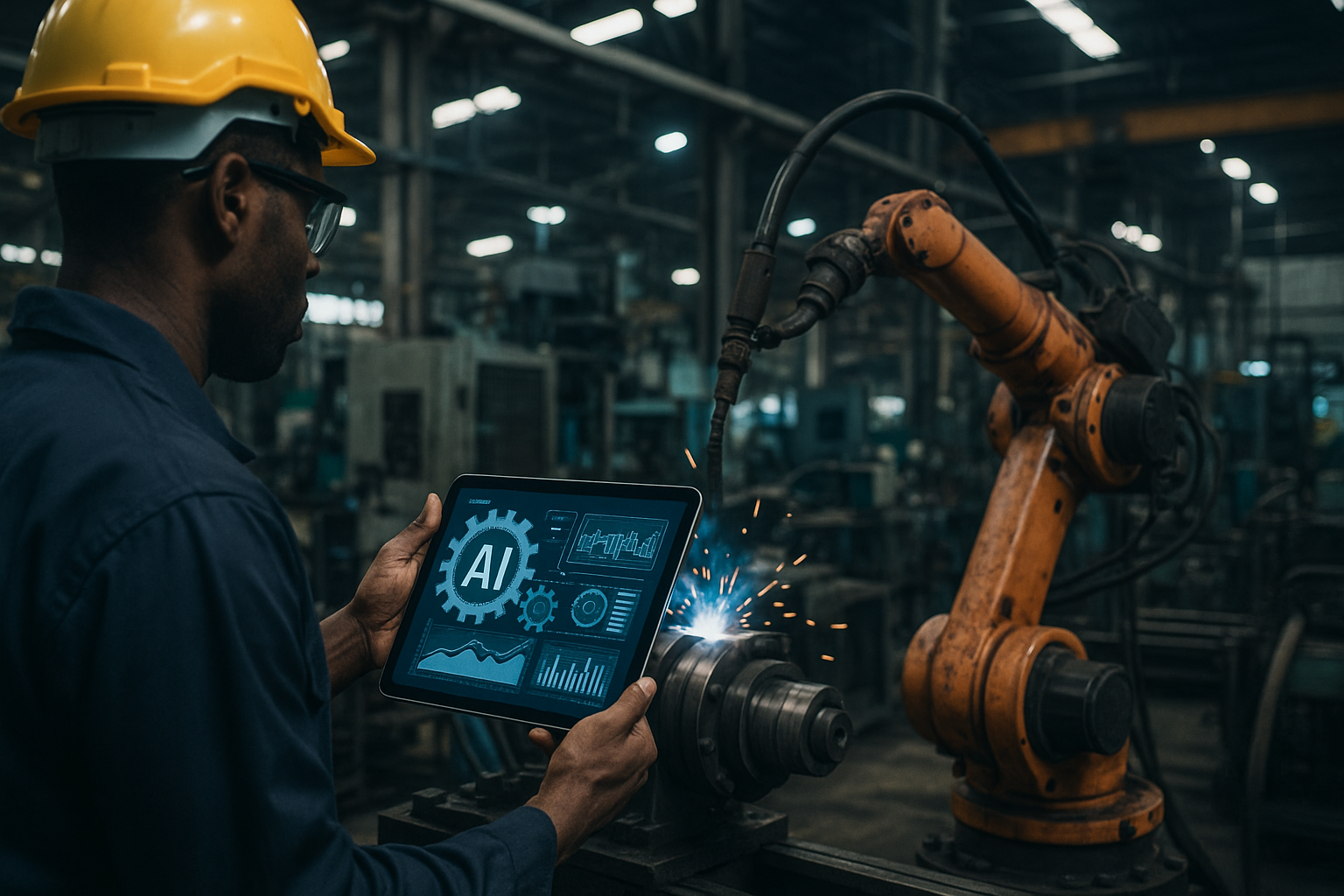













.png)
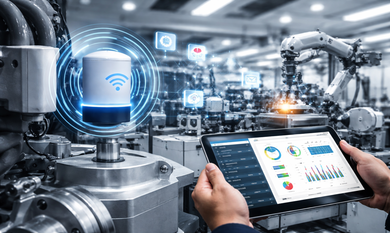









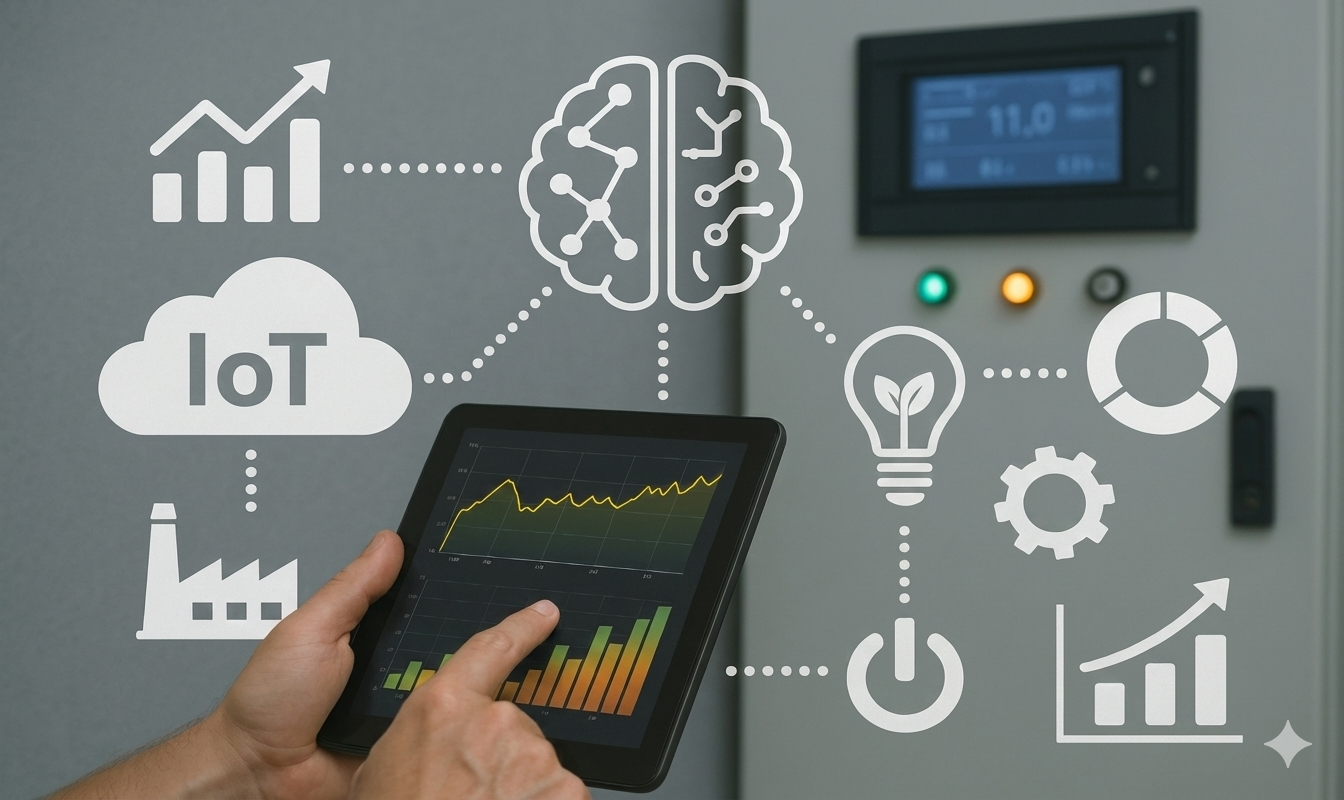






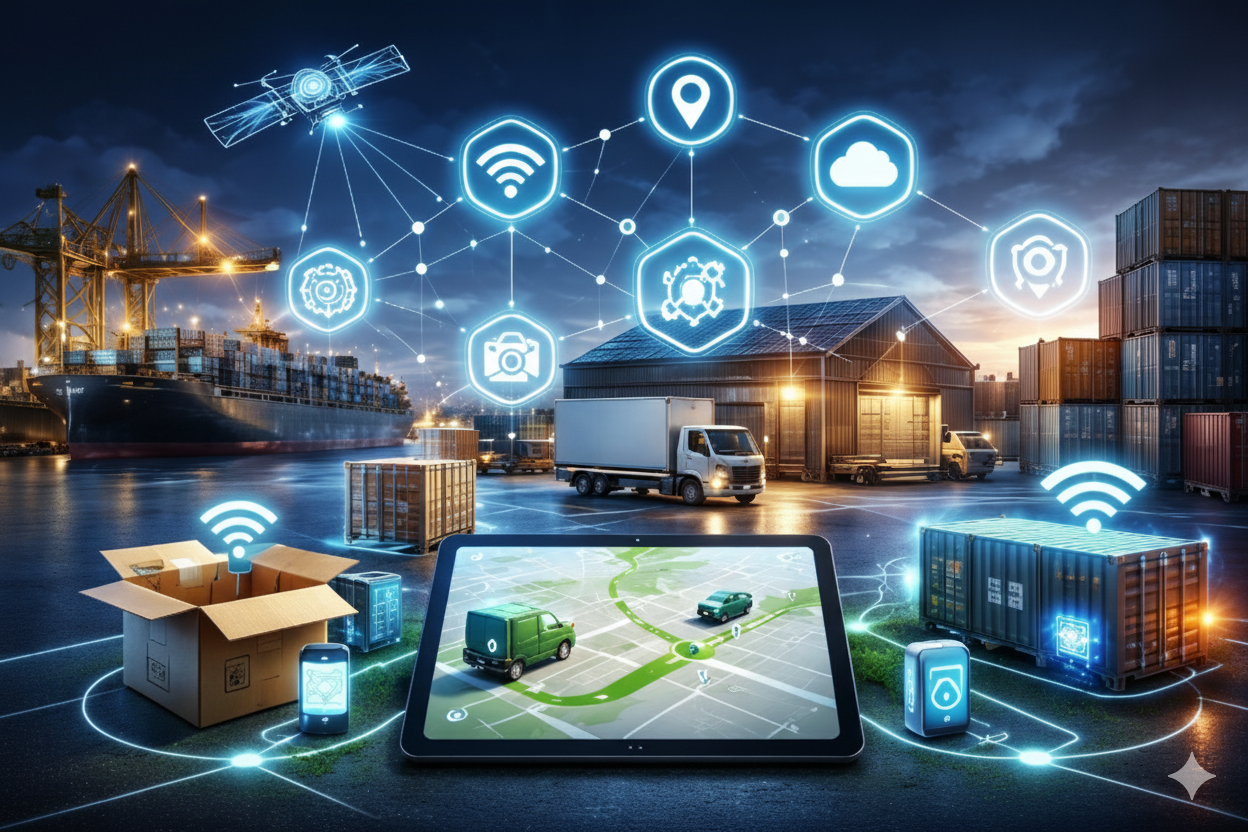





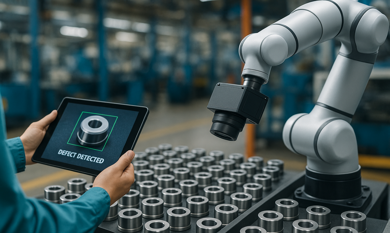
.png)

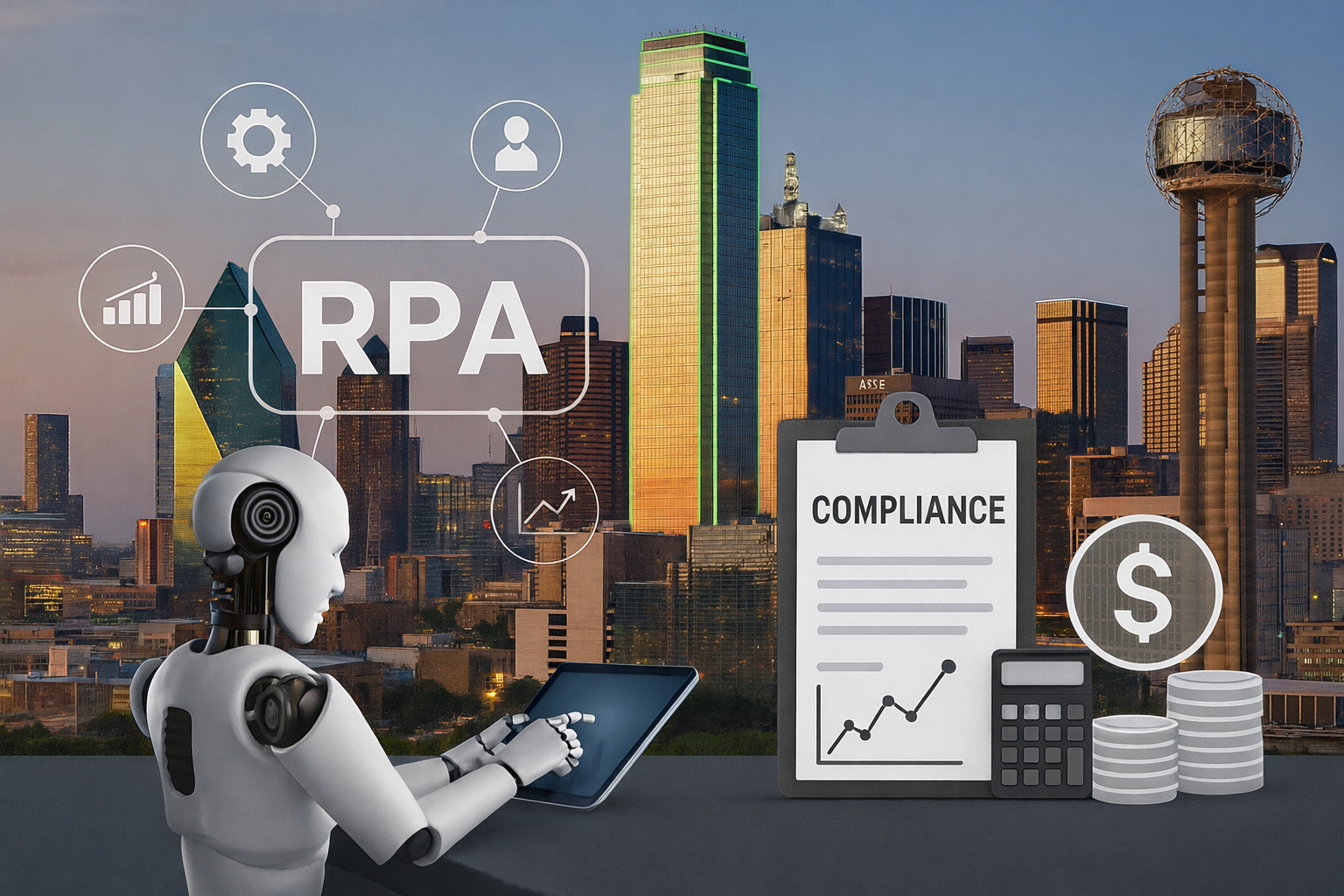

.png)



.png)








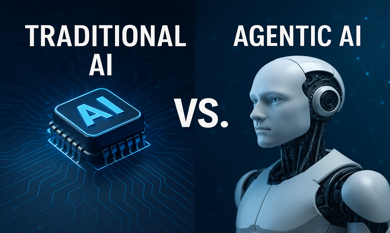
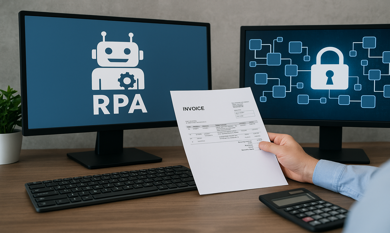

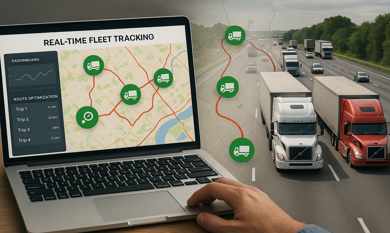



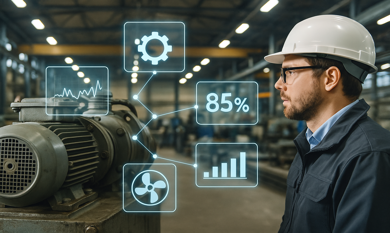

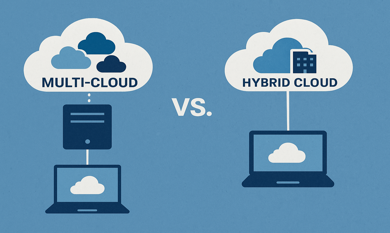

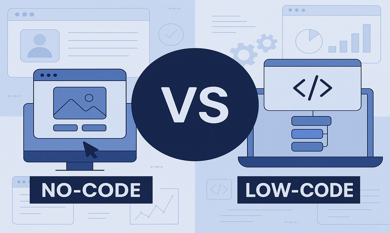



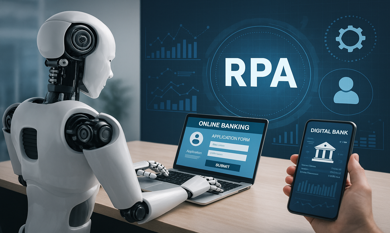

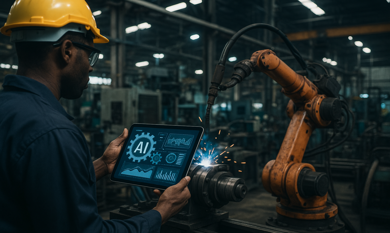


.png)
.png)


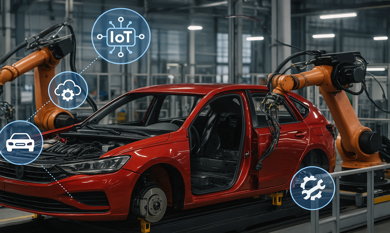



.png)
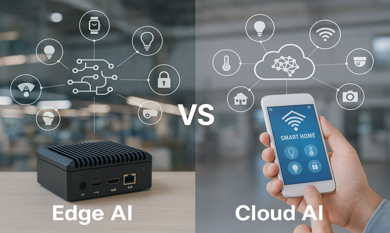
.png)
.png)
.png)


.png)
.png)
.png)
.png)

.png)

